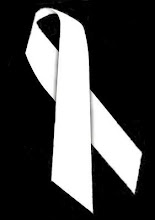The Chair of Henna, Ahmed Suleiman MBE gave the welcome. He specifically states that we need to engage with men, as any approach must be a holistic approach. The launch was hosted by Christine McCafferty, MP. She said that women are still affected by violence against women all over the wold, usually at the hands of men for dominance reasons. There is an imbalance of power between men ad women. Factors may shape the type of violence but it is not constrained to any one factor; VAW is universal which is why it's endemic. Domestic violence has historically been seen as a "private" issue, which is why the Council of Europe has placed the recognition of domestic violence as a human rights issues at the cornerstone of its approach. She finished by explaining that we need to place the needs and choices of the women affected at the centre of our approach, even if this may not be the same as what we want. McAfferty then introduced Alan Campbell, Parliamentary Under-Secretary of State at the Home Office. He thanked all of us in attendance, the people who work on the ground since the government can't do it all alone. Having this knowledge centre, he explained, to connect the dots is extremely important - "We fully support it."
Then, Naz Shah, the daughter of Zoora Shah (who killed an abusive partner and spent 14 years in prison) spoke about the reality of Izzat ("honour") and its impact on families. Zoora Shah was from India and suffered a forced marriage. Naz was sent to Pakistan to marry when she was 15. Since Naz was a girl, her father wouldn't pick her up until she was 10 months old. Her dad ran off with the 16-year old neighbour, forcing Naz and her siblings to leave school because of Izzat. Zoora then entered into a relationship with another man who would abuse her for years. She eventually killed him by putting arsenic in his food. She didn't tell her story in court because of Izzat and the shame that sexual and physical abuse would bring on her family, especially her daughters. Then in the 1990s, the family went to the judges, who rejected the Izzat aspect. Then a man ran over a woman with a car and they finally recognised it - Zoora has now been out for 4 years. Izzat runs deep in the veins; it must be understood to properly deal with the issues that Asian families face. However, we can't see Izzat as something that leads to killing, as it also protects and keeps families together. There are negative and positive aspects to Izzat.
Next was Shahien Taj MBE, the executive director of Henna. She explained why this site (the knowledge centre and directory) has come abut. She was brought up with Izzat - it can be a very bad or good thing; you need to know how to balance that type of life. One focus of the site is service delivery - people don't know how to approach certain families. Asian women's groups have done a lot in this regard. The main part of the site is the directory - it shows what the government is doing, what organisations like Women's Aid are doing, as well as ethnic women's groups and local authorities. The links take you straight to the relevant page of those organisations, not the homepage. The knowledge centre is all practice based and looks at the interconnectedness between forced marriage and HBV. They are trying to get people to go to their local service, and if there is not one, to speak to the community about starting one in the area.
Finally, Elspeth Webb spoke about the ethical approach to resolving value conflicts in child protection and Nikki Hubbard (ACPO) talked about the police's approach to HBV and forced marriage. In October 2008, the police set out a strategy on these issues and it is the only one in the world. Webb explained how culture can be an excuse to justify practices, but child welfare should always be the bottom line. We can't allow relativism to come in and be an excuse. There have unfortunately been some cases where children have died, and professionals were terrified of being called racist by speaking out against the "cultural practices." Amina Lone, the vice chair of Henna, gave the closing remarks.
The White Ribbon Campaign fully supports the HBV/Forced Marriage Knowledge Centre and Directory. It is a valuable resource for practitioners, police, and the government to understand such factors as Izzat when dealing with certain communities in order to better protect the women and children of those communities.

No comments:
Post a Comment